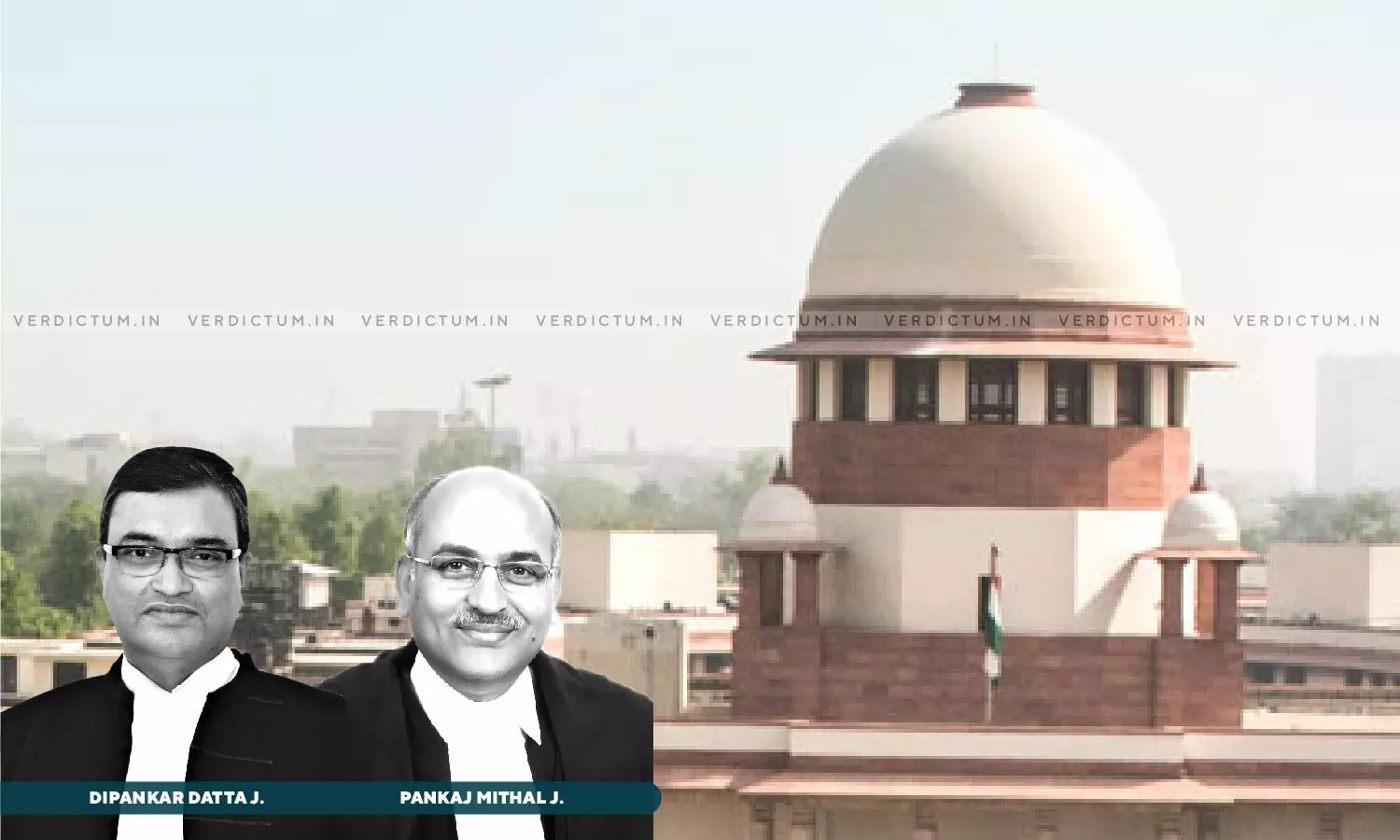
Mistake-Based Exemption From Limitation Requires Evidence of Reasonable Diligence: Suit Time Barred If Mistake Could Have Been Discovered Earlier: SC
 |
|The Supreme Court observed that a litigant may claim exemption from limitation due to a mistake, but if reasonable diligence could have revealed the mistake earlier, limitation counts from that date, possibly barring the suit.
The Court set aside the judgment of the Madhya Pradesh High Court which quashed a show cause notice issued to Bapuna Alcobrew Private Limited (respondent) regarding minimum guarantee charges for electricity consumption. The Court held that the respondent’s liability to pay these charges was “judicially crystallised” in prior proceedings, and this issue could not be reagitated.
A Bench of Justice Dipankar Datta and Justice Pankaj Mithal observed, “The crux of the matter is that the issue of liability accruing to the first respondent for non-payment of minimum guarantee charges had been decided previously and such decision, not being subjected to any appeal, had attained finality in the eyes of law estopping the first respondent from reagitating the issue. In our considered opinion, the second writ petition at the instance of the first respondent was not maintainable and, accordingly, ought not to have been entertained at all.”
Senior Advocate Liz Mathew represented the appellants, while Senior Advocate Jayant K. Mehta appeared for the respondents.
The Madhya Pradesh Madhya Kshetra Vidyut Vitran Company Limited (appellant) entered into an agreement with the respondent for electricity supply. Under the agreement, the respondent was required to maintain a minimum consumption, later increased in supplementary agreements. In 1996, the respondent sought permission to install an 807 kVA biogas turbo generating (TG) set for captive use. The electricity board granted permission on the condition that the TG set would only operate as a standby and would not run parallel to the board’s supply.
However, the board alleged that the respondent was operating the TG set simultaneously with the board’s supply, violating the terms of the permission, and issued a notice cancelling the TG set authorization. The High Court stayed this notice.
Following this, the board issued a show cause notice demanding Rs. 70.5 lakhs due to insufficient electricity consumption. The respondent challenged this demand, but the High Court affirmed that the company was liable for the minimum guarantee charges irrespective of actual consumption. However, the company later withdrew its writ petition.
A second show cause notice was issued for the same amount leading the respondent to file a second writ petition. The High Court quashed this notice, ruling that under Section 56(2) of the Electricity Act, 2003, the claim was time-barred, as it was issued beyond the two-year limitation period.
The Supreme Court pointed out that the High Court’s interim orders had already established the respondent’s liability to pay the minimum guarantee charges, and this was now a settled matter under the principle of issue estoppel. Consequently, the Court held that the respondent’s second writ petition, challenging the notice, was not maintainable as it revisited an issue already decided.
Consequently, the Court clarified, “If a suitor alleges that the suit could not be instituted by him within the prescribed period of limitation because of some mistake, which came to be discovered beyond the period prescribed for institution of a suit, it is open to such suitor to claim exemption from limitation in terms of Order VII Rule 6 of the Code of Civil Procedure, 1908 and such exemption can be granted in an appropriate case.”
“However, if a suitor alleges to have discovered a mistake later but it is proved on evidence being led that exercise of reasonable diligence could have resulted in the mistake being discovered on an earlier date, limitation would begin to count from that earlier date; and, in case, the count from the said earlier date takes the date of institution of the suit beyond the prescribed period of limitation, the bar of limitation would get attracted. Mistake is, thus, not a circumstance which can be used as a shield to save negligence in all cases. Absence of due diligence or lack of bona fides would not clothe a suitor to take undue advantage of a beneficent provision like section 17; it is for the relevant court to separate the grain from the chaff,” the Bench further explained.
Accordingly, the Supreme Court allowed the appeals.
Cause Title: The Madhya Pradesh Madhya Kshetra Vidyut Vitran Company Limited & Ors. v. Bapuna Alcobrew Private Limited & Anr. (Neutral Citation: 2024 INSC 829)
Appearance:
Appellants: Senior Advocate Liz Mathew; AOR Rohit K. Singh; Advocates Bagavathy Vennimalai and Prakhar Srivastav
Respondents: Senior Advocate Jayant K. Mehta; AOR B. Vijayalakshmi Menon and Salvador Santosh Rebello; Advocates Kuber Dewan, Anuradha Dutt, Neeharika Aggarwal, Kaushtubh Srivastava, Raghav Dutt, Raghav Sharma, Jaskirat Pal Singh and Pranjal Pandey